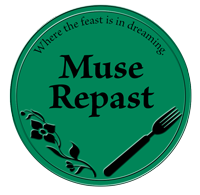Qoheleth Chapter Nine
Translation from the Anchor Bible commentary by R.B.Y. Scott
9
1So I thought about all I had observed—that just and wise men and what they do are in God’s power; whether he will favor them or not, no one knows. Anything may happen to anyone; 2 the same chance befalls the innocent and the guilty, the good and the bad, the clean and the unclean, the one who brings a sacrifice and the one who does not. As it is with the virtuous, so it is with the sinner; as with the one who swears, so with him who is afraid to swear. 3 This is the worst of all the things that happen under the sun—that all meet the same fate. That is why men’s minds are full of evil, and madness is in their minds while they live—because their only future is to die. 4 It is true that “while one is among the living one has hope” for “it is better to be a live dog than a dead lion.” 5 The living at least know that they will die, but the dead know nothing at all; they no longer have any compensation, when their memory has perished. 6 Their love, their hate, their ardor have completely vanished, and they have no part forevermore in all that happens under the sun .7 So then, eat your bread with cheerfulness, and drink your wine with an untroubled mind, since already God has approved what you do. 8 At all times let your clothing be white, and the oil on your head not be lacking. 9 Enjoy life with the [person] you love all the fleeting days of your life that God grants you under the sun, for that is your compensation while you live and toil in this world. 10 Everything your hand finds to do, do with your full strength; for there is no doing or reckoning or knowing or understanding in Sheol, whither you are bound. 11 Once more, I saw that under the sun the race is not won by the swift, nor the battle by the warrior; still less does bread come to the wise, riches to the intelligent, or favor to the learned; when the time comes, bad luck overtakes them all. 12 Man never knows when his time of misfortune will come; like fish caught in an accursed net, like birds trapped in a snare, so men are caught when the moment of disaster comes suddenly upon them. 13 Another example of wisdom in this life which I have observed was this, and it struck me as significant: 14 There was a small city, with few men in it; and a great king attacked it, surrounded it, and built great siegeworks against it. 15 Now there was in it a man who was poor but wise, and he might have saved the city by his wisdom. But no one thought of that poor man. 16 So I said, Wisdom is better than might! Yet the wisdom of the poor man was despised, and his words went unheeded. 17 The quiet words of wise men are to be heeded rather than the shouting of a king of fools, and 18 wisdom is better than weapons; but on the other hand, one rogue can ruin a great deal of good.
—
This chapter in Qoheleth answers the question: what do you do now that you don’t have to do anything? Since we are all equal in our fate under the sun- since all we can do when we rely on our own devices is to die, there is no hope in stockpiling our works and good deeds for our own righteousness. So we no longer have to do anything to become right with God. There is nothing we can do, but die. So what is left? Well, freedom from worry! We are not in charge of the outcome, so we should then all the more gladly take up our work that is given to us.
Qoheleth says “it is better to be a live dog than a dead lion” which is a Hebrew colloquialism that is similar to when we might say “don’t throw the baby out with the bathwater.” (See LW 15, 147). That is, just because we are all subject to the same fate (death) do not throw out all the good work that God gives in life. Or as Luther paraphrases it, “We are forced to relinquish the larger part of the world to Satan [vanity, and death] and [we] can scarcely gain a thousandth part of it for God. And so, if your lion dies, you had better not kill your dog.” The lion, the idea that we can make good of ourselves in this life and prosper, the myth of progress, the idea that righteousness is to be gained from all of our toil, is dead. So we had better not kill our dog: which is the good work that God gives our hands to do.
Luther points to this as the necessary paradox of all preaching:
Thus also when we preach faith, we exhort [people] away from works altogether in order to proclaim a day of rest. On the other hand, when faith has been planted, on must act to make Christians very busy on behalf of their neighbor. Here they must not keep any day of rest at all but must be zealous for Good deeds, ardent in their love for the neighbor, and keeping a day of rest only in relation to God (LW 15, 135).
So chapter nine teaches us that our works are useless for making ourselves better, but since God makes us better through faith, there is nothing left to do but our very works so that we can share good things with our neighbor. It is precisely this god-given love shared with others that is behind verses 7-10. Share life with the ones you love! Eat drink and be merry, and take up what good work God gives you to do with gusto! It is not up to you whether it succeeds or fails, so rejoice, and do it gladly trusting that God will bring Good things out of whatever its end. Faith alone pleases God (as we learn in the first commandment), and so God commands the work, but forbids the worry. For the worry is our putting our trust in ourselves and not in God. “Let it be enough for you that you have a gracious God. For what is the malice of the world in comparison to the sweetness of God?” (LW 15, 149).
Luther concludes his commentary on this chapter “Therefore it is best to be happy and to work for the present, casting away all anxiety about the future; for it is better to lose my good deeds than to be lost myself along with my good deeds” (LW 15, 154). That is the baby that we throw out with the bath water when we despair that we will all die, or when we worry about whether our works will amount to anything: we throw out ourselves. Our own personhood is what’s at stake! God is gracious and good, and gives us life, our lives, and our selfhood. We seek ever to destroy that selfhood by heaping up worry upon worry, and work upon work all ironically in the name of preserving that selfhood. But it is again, not in our hands to keep our selfhood, but only in God’s who alone creates our selfhood and sustains it.
“The race is not won by the swift, nor the battle by the warrior; still less does bread come to the wise, riches to the intelligent, or favor to the learned” (verse 11, above), these are all won only by God’s grace and mercy. For our own efforts, we only have misfortune. So trust in God! For from God comes all good things.
The concluding story about a wise man and his advice on how to save a city is a mess of hard to translate Hebrew. It is not clear whether the wise man delivered the city (as in the NRSV translation) or if the city perished but could have been saved (as translated above). Whatever the case, I think the point of the story is that the Good news of God is hard to hear. Just as it is hard to hear the positive words of comfort buried in Qoheleth’s negative-sounding words. So we need to hear time and again about God’s grace and mercy. We forget it easily, and leave it unheeded. While we know that wisdom is better than war, still it only takes one bungler, one stray thought destroy much good. While the old creature might be drowned our baptisms, it is a good underwater swimmer. We must be continually refreshed by God’s good word, so that we can live and regain our selfhood in community with one another.

